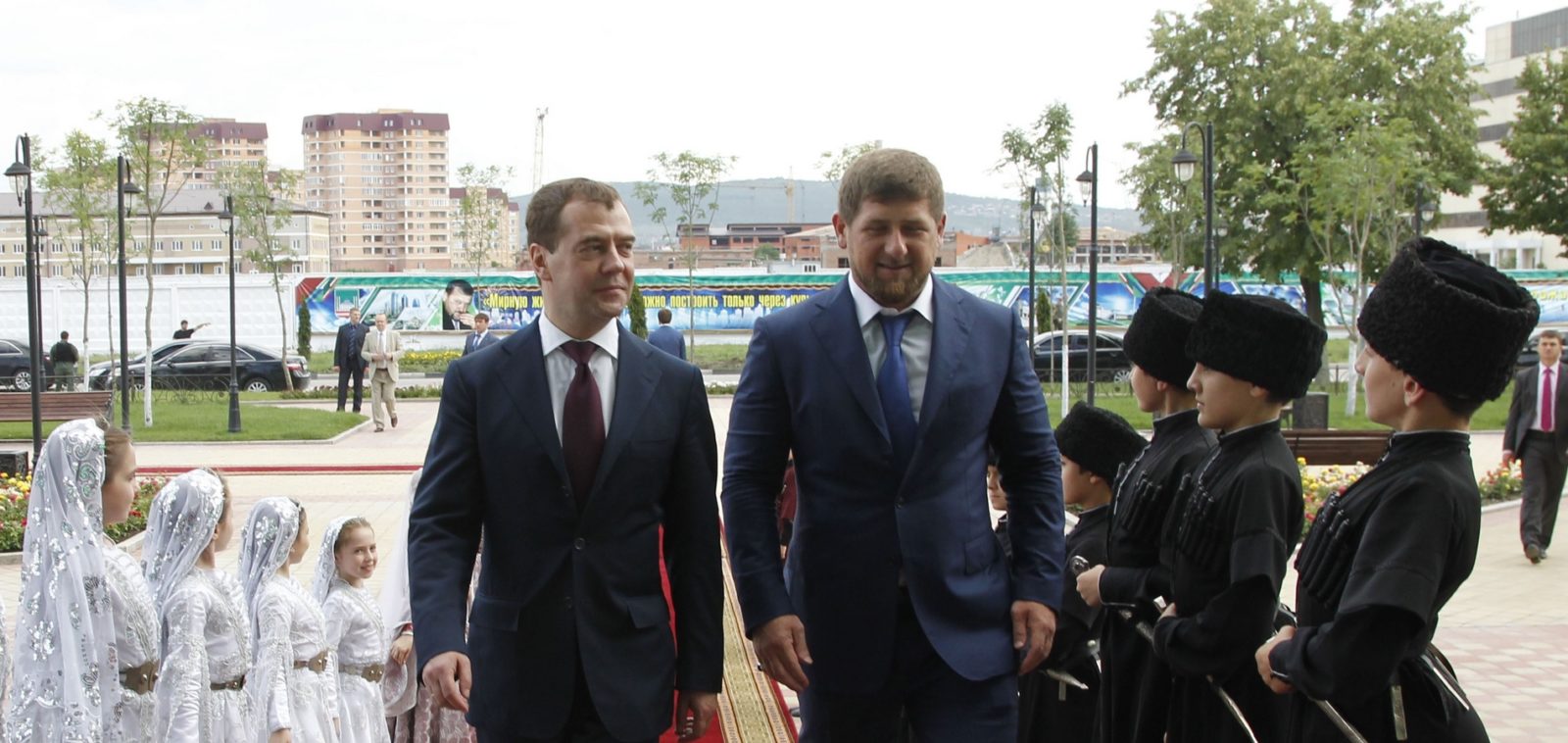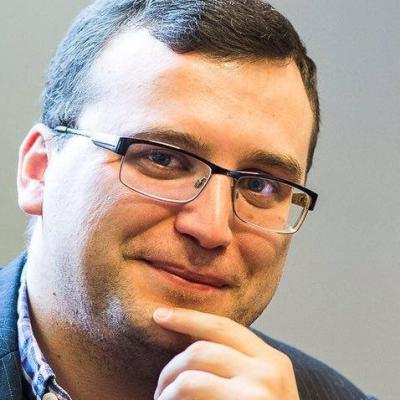The influence of Ramzan Kadyrov, who has ruled the Republic of Chechnya since 2007, stretches far beyond the Caucasus. Due to the peculiarities of Russia’s political system, Kadyrov’s dictatorship has long had a sizeable impact on Russia’s wider domestic policy. It does not stop there: the Kremlin is increasingly using Kadyrov as a foreign policy asset.
Kadyrov has three main foreign-policy resources. Firstly, his personal connections with Middle Eastern and North African politicians. Secondly, his de facto personal military forces. Thirdly, his influence on Chechen diasporas and criminal groups in the EU, the Balkans, and across the Middle East.
These resources are used directly to preserve and bolster the Chechen dictator’s power and authority. But they have also frequently been used to provide foreign-policy “services” to his boss in the Kremlin – from establishing contacts with monarchs in the Persian Gulf region, to conducting special-operations missions and gathering vital information for Moscow. In exchange, the Kremlin guarantees political immunity for Ramzan Kadyrov and his close associates.
Personal connections
As Russia attempts to reassert itself in the Middle East, Kadyrov’s connections have taken on a renewed importance for the Kremlin. It seems he mostly inherited his connections with the Islamic World from his father, Akhmad Kadyrov. This is a trait shared by all of Chechnya’s previous post-Soviet leaders or contenders: from General Dudayev to Zelimkhan Yandarbiyev (assassinated by Russian agents in Qatar in 2004) and Sulim Yamadayev (assassinated by Kadyrov’s men in the UAE in 2009).
Back in Soviet times (1990–1991), Kadyrov Senior travelled to Jordan to study Islamic law, and probably made his first contacts there. Later, while serving as the Mufti of Chechnya after the First Chechen War, he appointed Ziyad Sabsabi as his international relations advisor (in 1997) – a man who is now the key figure responsible for Ramzan Kadyrov’s foreign policy.
Ziyad Sabsabi is a Chechen of Syrian origin, who was born in Aleppo and graduated from Damascus University. In 1991–1994, he worked at the ministry of foreign affairs in newly independent Chechnya. Since 2008, he has held the position of deputy chairman of the Federation Council’s foreign affairs committee and represents (obviously) Chechnya in the upper house of the Russian parliament. Sabsabi is also a vice president of the Akhmad Kadyrov Fund.
After becoming the official, sovereign head of Chechnya in 2007, Ramzan Kadyrov immediately started honing his foreign relations skills. While the heads of other Russian regions travel abroad in order to meet businessmen and colleagues in other countries, Ramzan Kadyrov often arranges high-level meetings. In this respect, we can list Kazakhstan (in 2007), Saudi Arabia (2007, 2009 and 2015), Libya (2010), Jordan (2011) and the UAE (2010, 2011, 2013 and 2016). Ramzan Kadyrov also held meetings with Middle Eastern leaders during their visits to Russia (and some of them made special trips to Chechnya): Libyan dictator Muammar Gaddafi (2008), King Abdullah II of Jordan (2014 and 2015), the Crown Prince of Abu Dhabi (2015), the vice president of Afghanistan, Abdul Rashid Dostum (2015), and the Emir of Qatar (2016). This is far from a complete list of his meetings with Middle Eastern and North African rulers with whom Russia often had very cold relations.
Essentially, Ramzan Kadyrov is a subcontractor for Russian relations with the conservative Islamic world. This becomes even more obvious if one considers that he has never met Bashar al-Assad publicly, despite receiving official invitations. The Kremlin controls Syrian affairs directly.
In Middle Eastern affairs, the aims of the Chechen dictator and his associates are generally clear: to strengthen their position in negotiations with the Kremlin, to promote their business interests, and to secure a “backup airport” in case of emergency. Initially, at the height of its oil-and-gas “boom” in 2007–2008, Russia needed Ramzan Kadyrov’s assistance in foreign relations. At that time, it became necessary to coordinate a pricing game on the hydrocarbon market with Persian monarchs and other Arab countries.
Later, due to the spreading “Arab Spring” and wars in Libya and Syria, Moscow’s interest in Chechen diplomacy evolved into pragmatic dependence, and its interests may extend beyond the Middle East. Close attention should also be paid to such episodes as Ramzan Kadyrov’s involvement in freeing Russian sailors arrested in Libya on suspicion of oil-smuggling, or Chechnya’s links with the Montenegrin opposition.
Military forces
As a consequence of the Second Chechen War, many former fighters betrayed by their bosses joined troops led by field commanders loyal to Moscow. The Kadyrovs quickly took them under their control. Even divisions set up by Chechens and formally subordinate to the Russian army and internal troops (known as the National Guard since 2016) report to Ramzan Kadyrov personally, and have their own special uniform.
Nevertheless, Kadyrov Junior only managed to fully “monopolise” this process in 2008, after politically defeating the Yamadayev clan (which de facto controlled the Russian military-intelligence “Vostok” battalion). Since then, Ramzan Kadyrov’s army has swelled with young Chechen men joining its ranks, because it is almost the only way for them to move up the social ladder. It is currently unclear how these forces (now numbering 20–30,000 soldiers) would behave should Moscow wish to get rid of Ramzan Kadyrov or if changes were to occur inside the Russian authorities.
Being unable to estimate the threat posed by these forces, the Kremlin decided to use them instead, thus playing into Ramzan Kadyrov’s hand. By 2006, Chechen fighters from the “Vostok” and “Zapad” battalions were already guarding Russian soldiers rebuilding bridges in Libya. In August 2008, the “Vostok” battalion was actively involved in the war against Georgia, much to Ramzan Kadyrov’s displeasure, because Moscow had not requested his services. However, this “competition” soon ceased following the assassinations of Ruslan and Sulim Yamadayev.
Ramzan Kadyrov’s real “finest hour” began in 2014, when Russia started its war against Ukraine and Chechen divisions were among those deployed to fight. Ramzan Kadyrov would also seem to have agents inside IS in Syria and Iraq, and his fighters took part in battles on the side of Bashar al-Assad’s army even before the Russian campaign officially began in Autumn 2015. In December 2016, a Chechen battalion (wearing military police uniforms) was sent to maintain order in Aleppo which had been recaptured by Assadists, with active involvement from Russia.
The Chechen dictator is also actively investing in his foreign-policy resources. In 2015, Ramzan Kadyrov started building a private international training centre for special forces near Gudermes. Meanwhile, he is already actively promoting the centre’s “services” – as well as Chechen military specialists – abroad, for use in fighting terrorists and combatants, and engaging in modern urban warfare (of which Ramzan Kadyrov’s fighters have considerable experience).
The problem is that there is no turning back. It will not be easy for the Kremlin to give up using Ramzan Kadyrov’s military resources in its foreign policy. Moscow relies on using force and acting as a troublemaker in order to achieve its goals. For assistance, it will continue to turn to those who have extensive experience of participating in local conflicts and know the cultural specifics of countries with a Muslim population.
The Chechen diaspora and criminal networks
Another of Ramzan Kadyrov’s important foreign-policy resources is his connection with Chechen diasporas in the Middle East and Europe. Although quite modest in size (8000–15,000 people), the historically most influential Chechen diaspora is in Jordan. The Chechen diaspora in Turkey is estimated at up to 100,000 people, in Egypt – 5000, in Syria – 4000, and in Iraq – 2500.
There are many more Chechens in Europe, but estimates vary significantly here, ranging from 70,000 to 150,000 people. Up to 40,000 of them live in France, up to 30,000 in Austria, up to 20,000 in Belgium, and 10,000 in Germany. Chechen diasporas in Europe are much less integrated into their host countries’ societies, however, and are therefore prone to becoming partially criminalised, but they also appear to have become assets for Kadyrov.
The methods that Ramzan Kadyrov uses to establish control over diasporas is a combination of carrot and stick. The stick is direct violence against his Chechen enemies who have emigrated. The carrot appears to be the attention Ramzan Kadyrov pays to diasporas: building mosques, cultural projects, and humanitarian aid. The Chechen authorities can also influence the European diaspora through the “Vaynakh” international sports and culture association, and other civil society organisations. Ramzan Kadyrov is probably also interested in maintaining connections with the Chechen diaspora in order to receive additional donations for the “Kadyrov Fund” (such donations are obligatory for many Chechens in Russia).
Apart from ordinary Chechens living abroad, Chechen criminal groups should logically be of interest to Ramzan Kadyrov, but there is only indirect evidence of this. It is possible, however, that some of the Chechen mafia in Europe are linked to the Chechen authorities and are currently striving to expand. From the point of view of foreign policy, contacts with the mafia provide information. Besides, terrorists often rely on criminal networks too. What is also important is that criminal networks offer money-laundering and other “services” to representatives of corrupt regimes.
The Kremlin feels comfortable having dealings with such regimes since, so far, it benefits both Moscow and Grozny.
In general, the Russian authorities are using Ramzan Kadyrov’s foreign-policy resources because they cannot operate in any other way. In the short run, this increases the Kremlin’s potential and allows it to feel that it has full control over the Chechen dictator. But due to Moscow’s increasing “shadow” activity in the Middle East and Europe, its dependence on Ramzan Kadyrov is growing. Kadyrov and his associates will exploit this weakness more and more frequently in their interests, so there are three scenarios here:
- The optimistic scenario: substantial reforms to Russian economic and political institutions in the post-Putin period will restore the Russian state’s capacity to act in the interests of all its citizens, thus eliminating the Chechen leadership’s exclusive status (and that of any other state agencies and departments).
- The realistic scenario: Ramzan Kadyrov’s resources (especially the military component) will be “utilised” during one or more existing conflicts in which Russia is participating or has shown interest lately.
- The pessimistic scenario: a new war in the North Caucasus if Russian state institutions continue to degrade.










